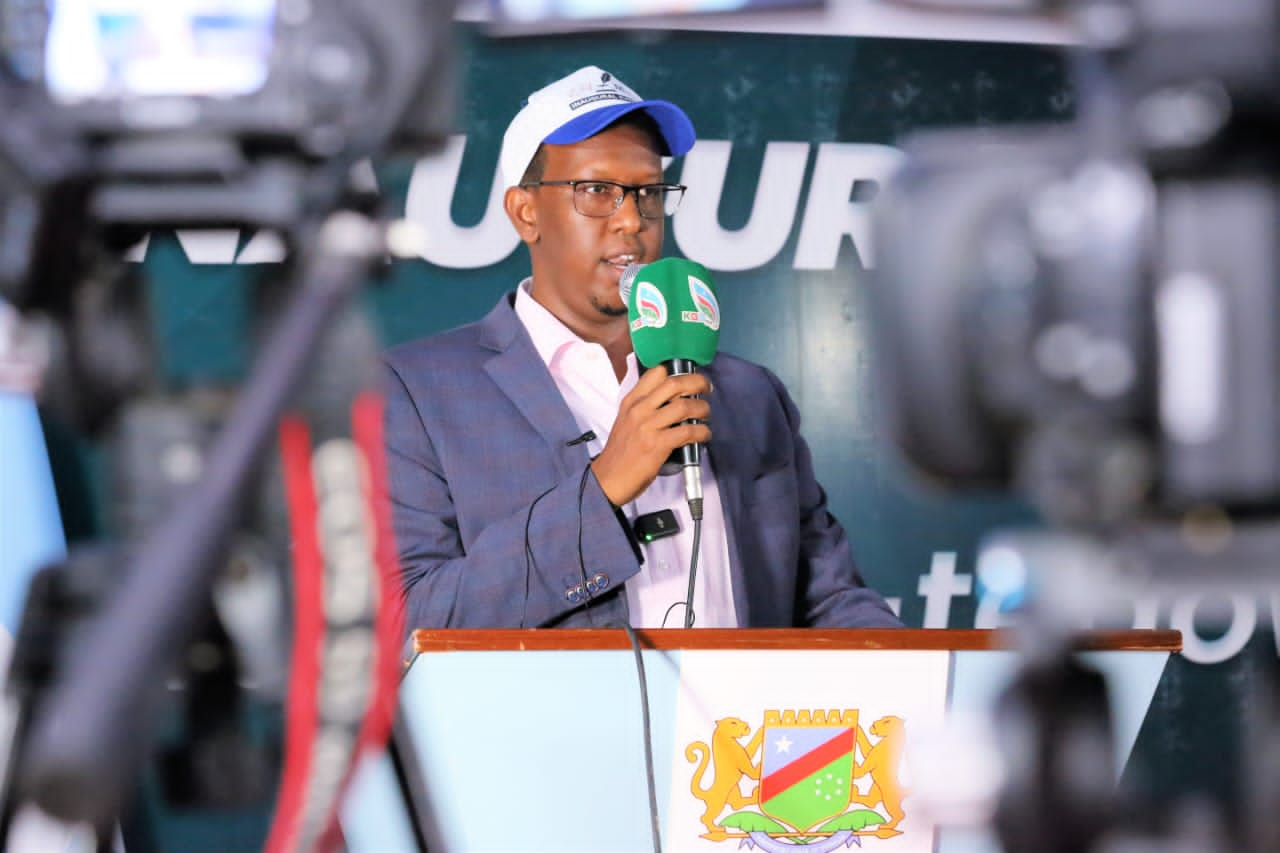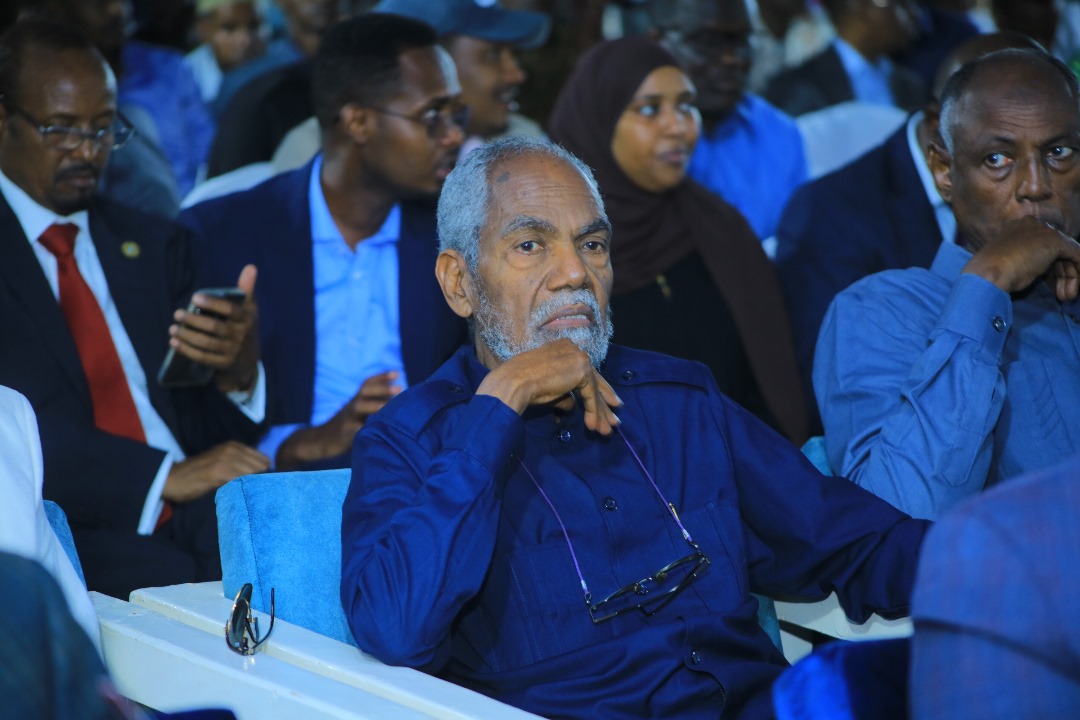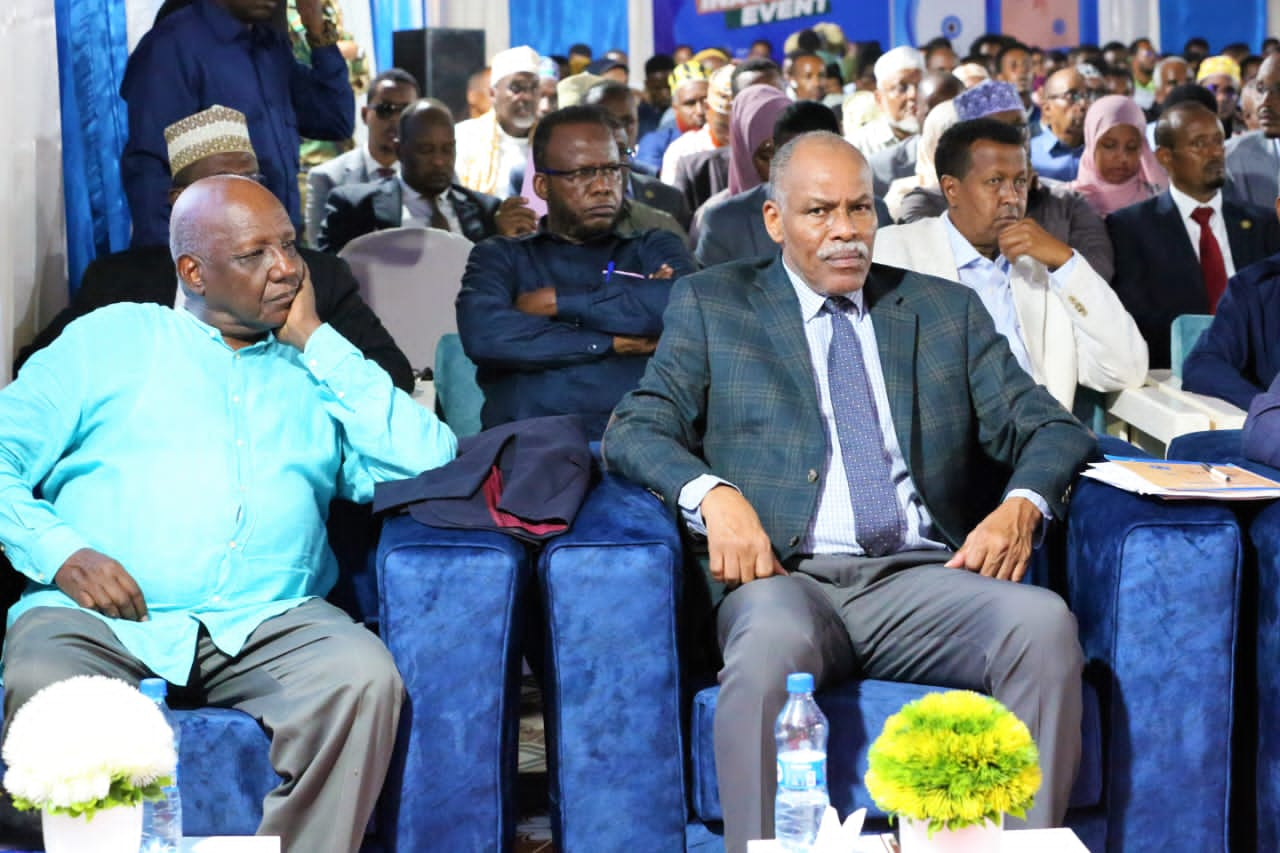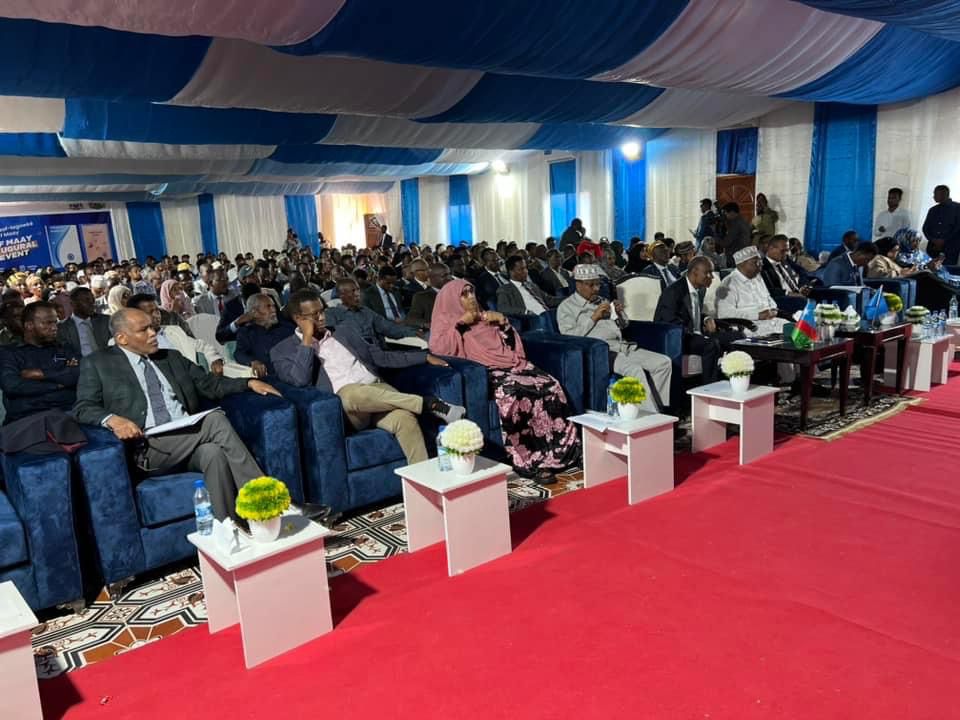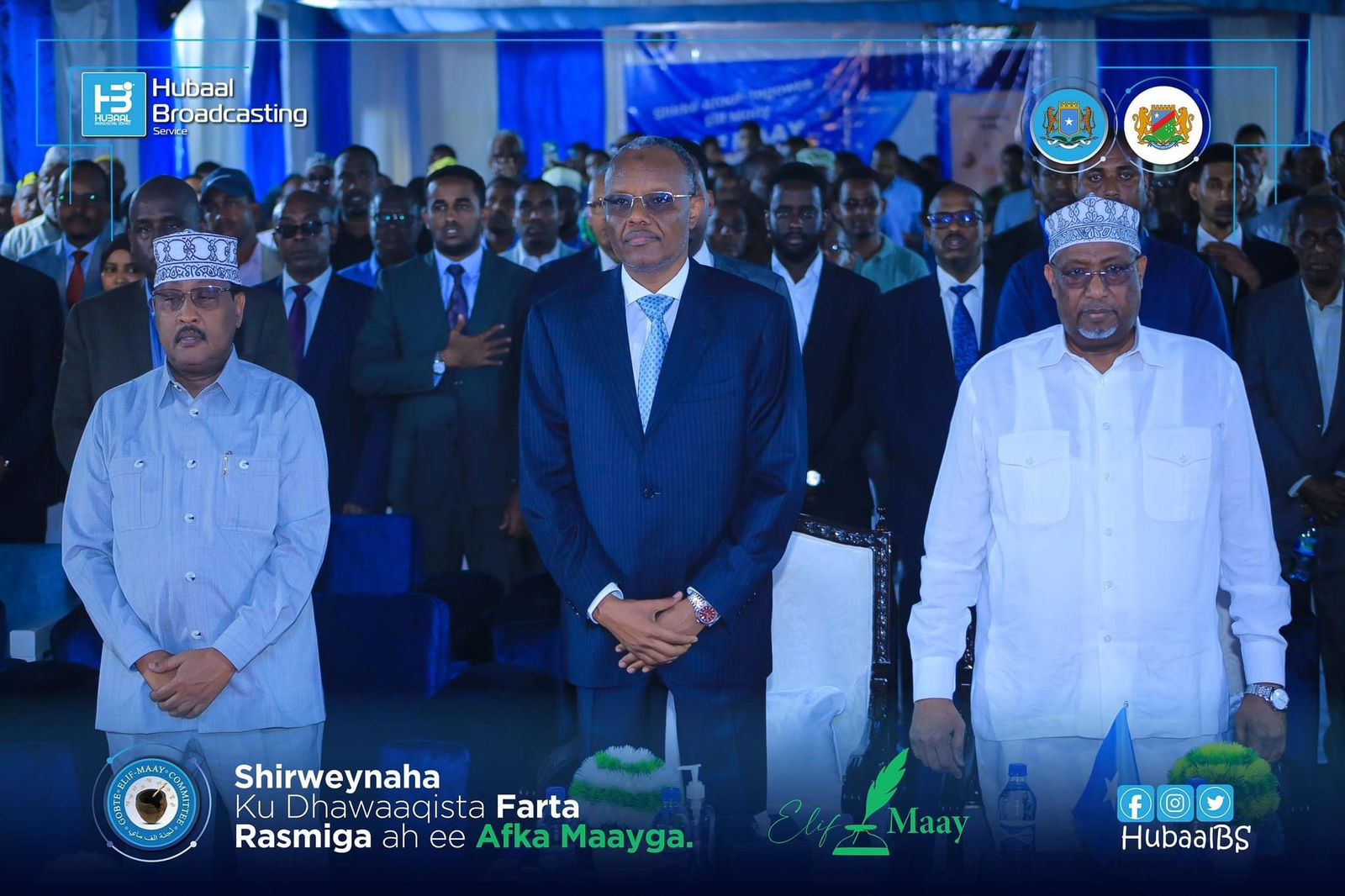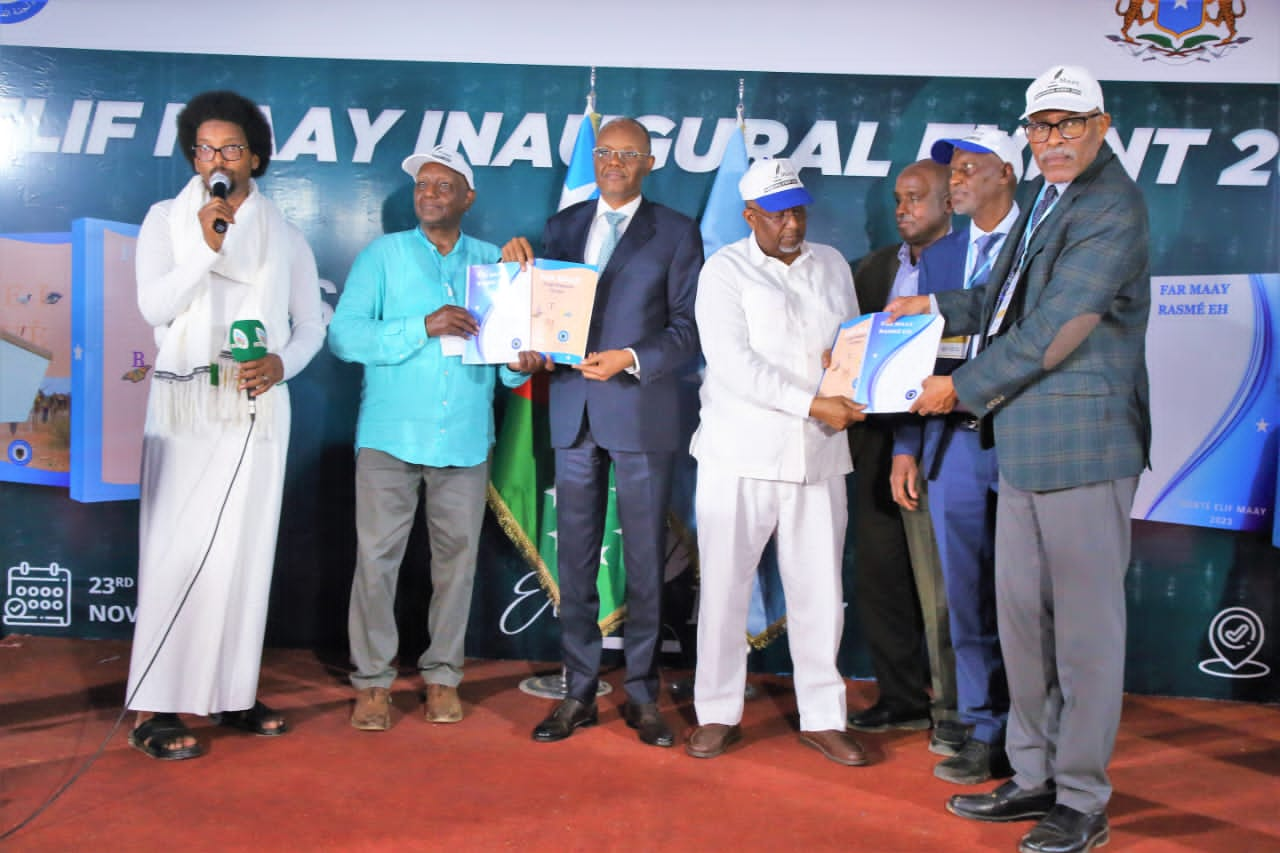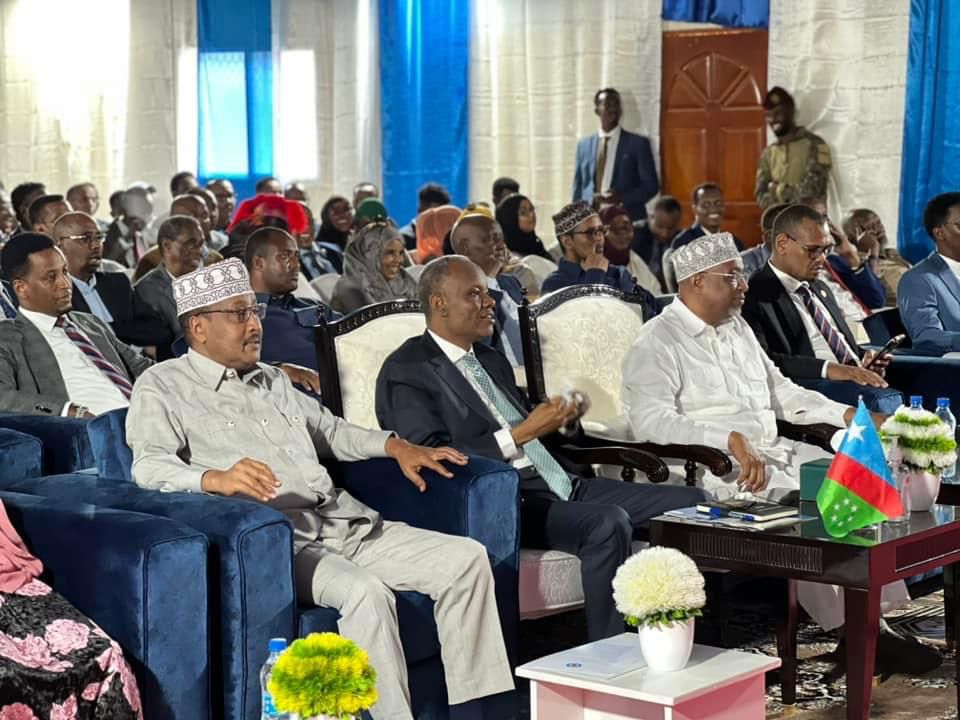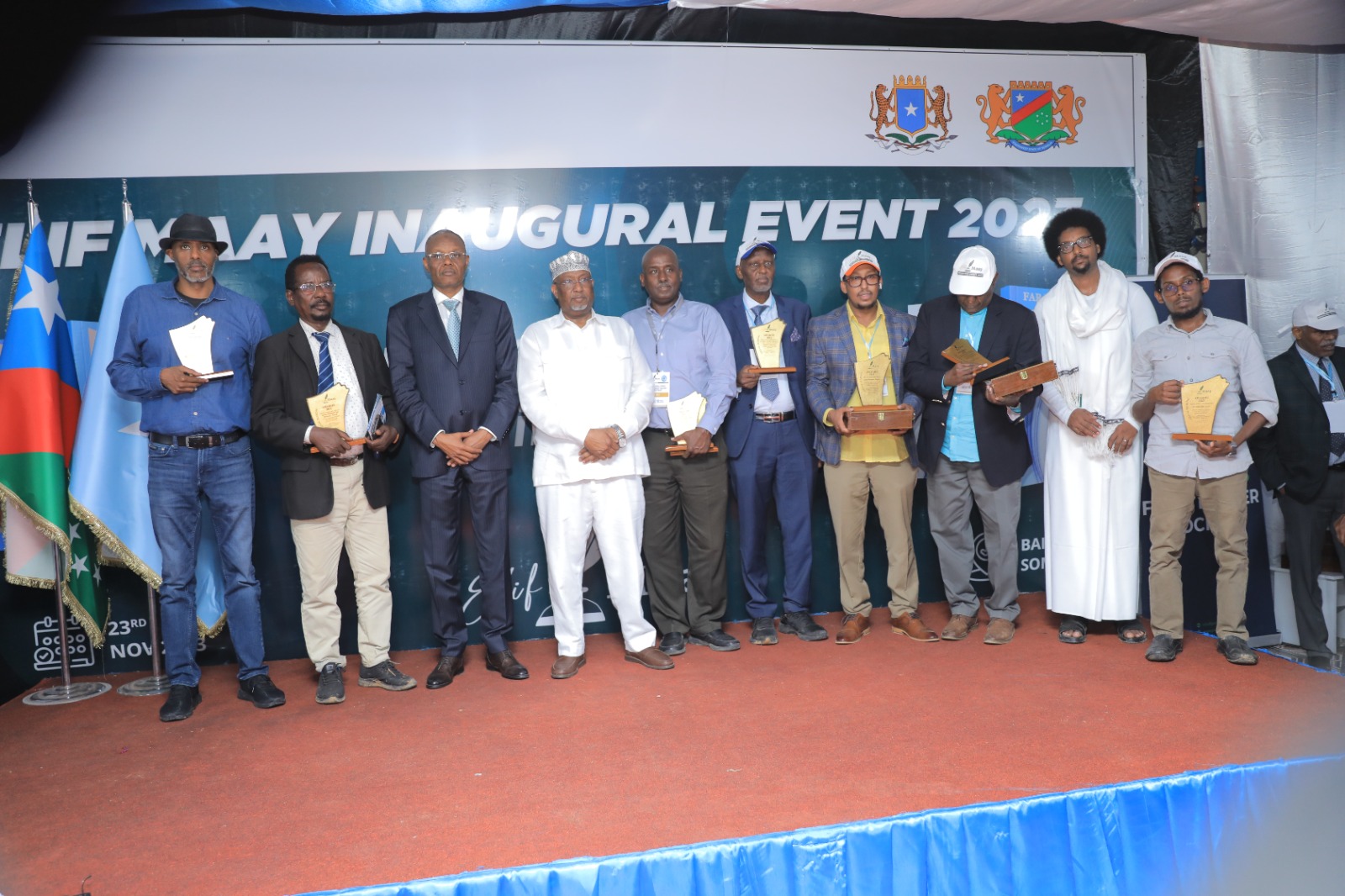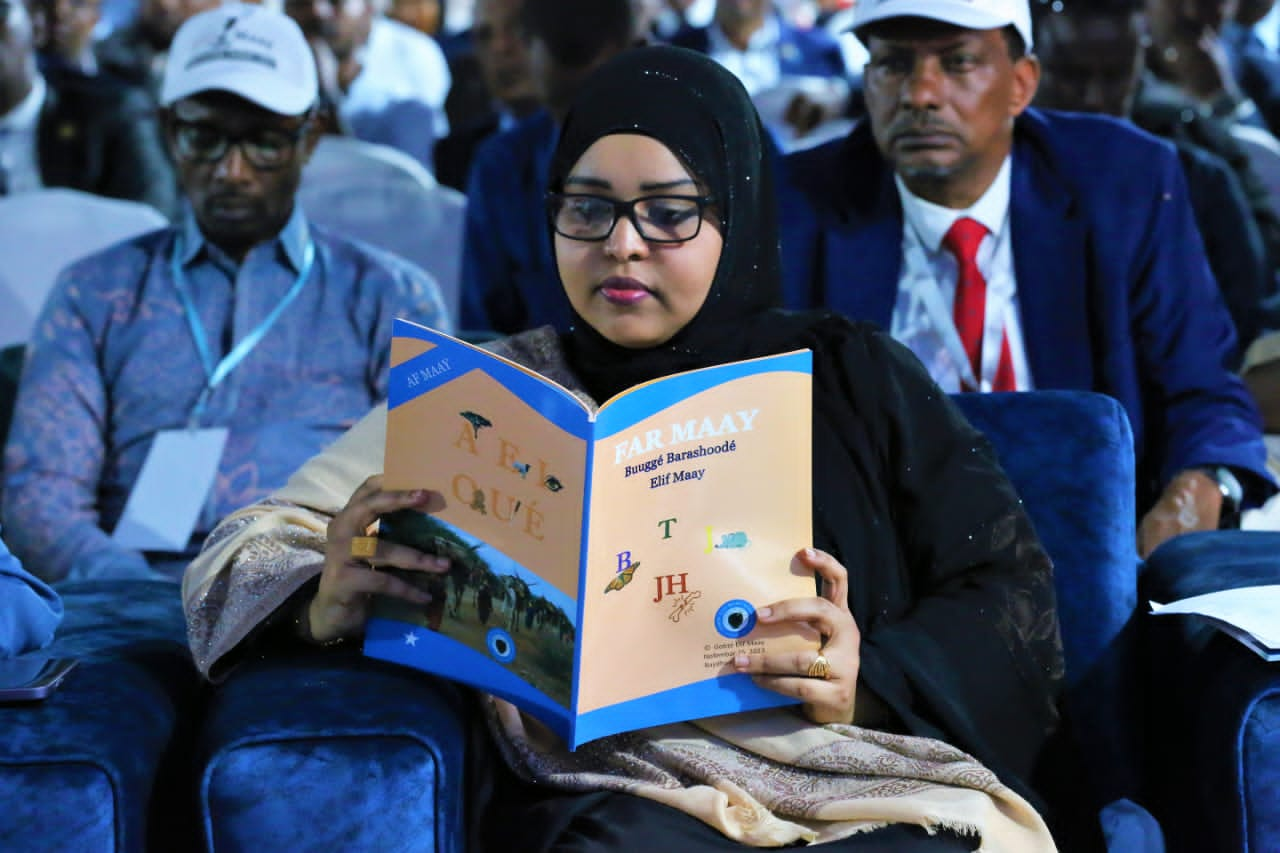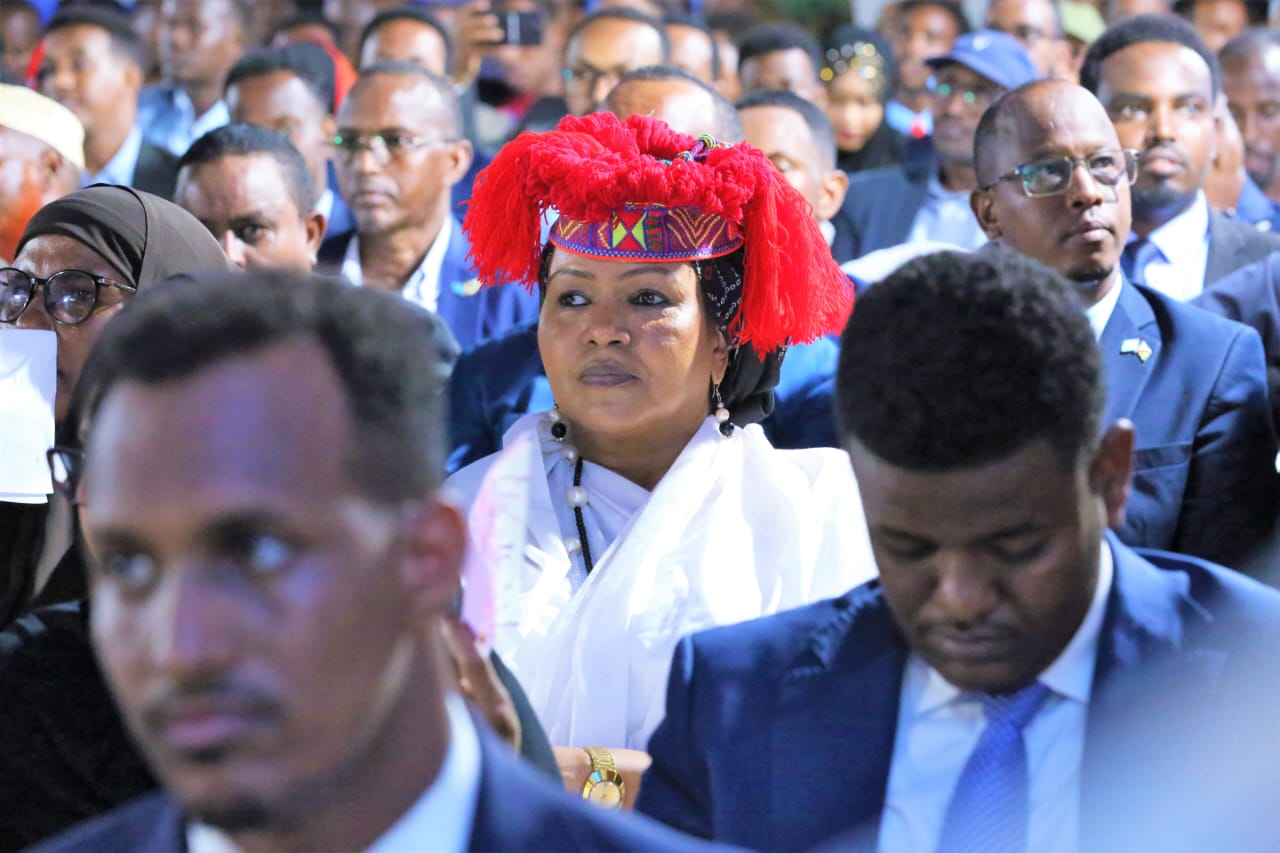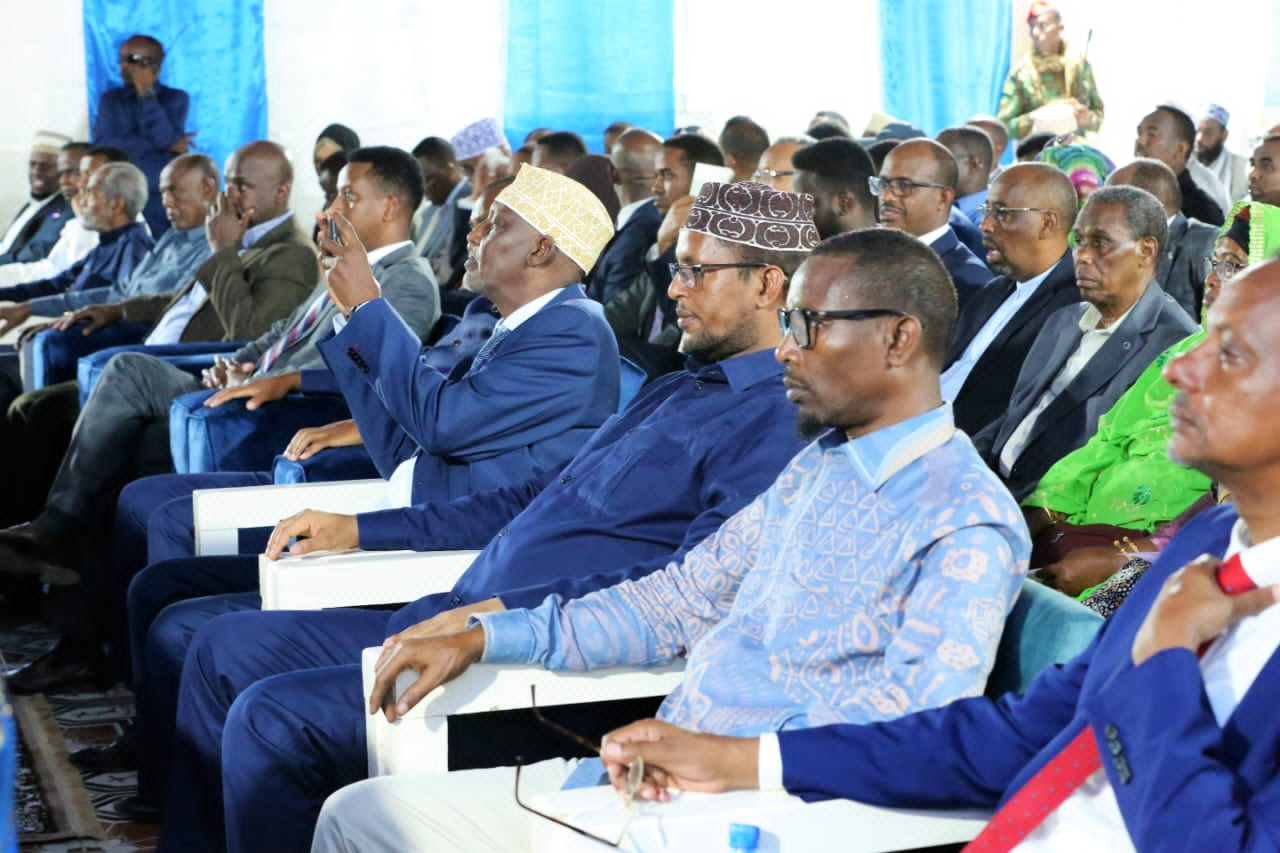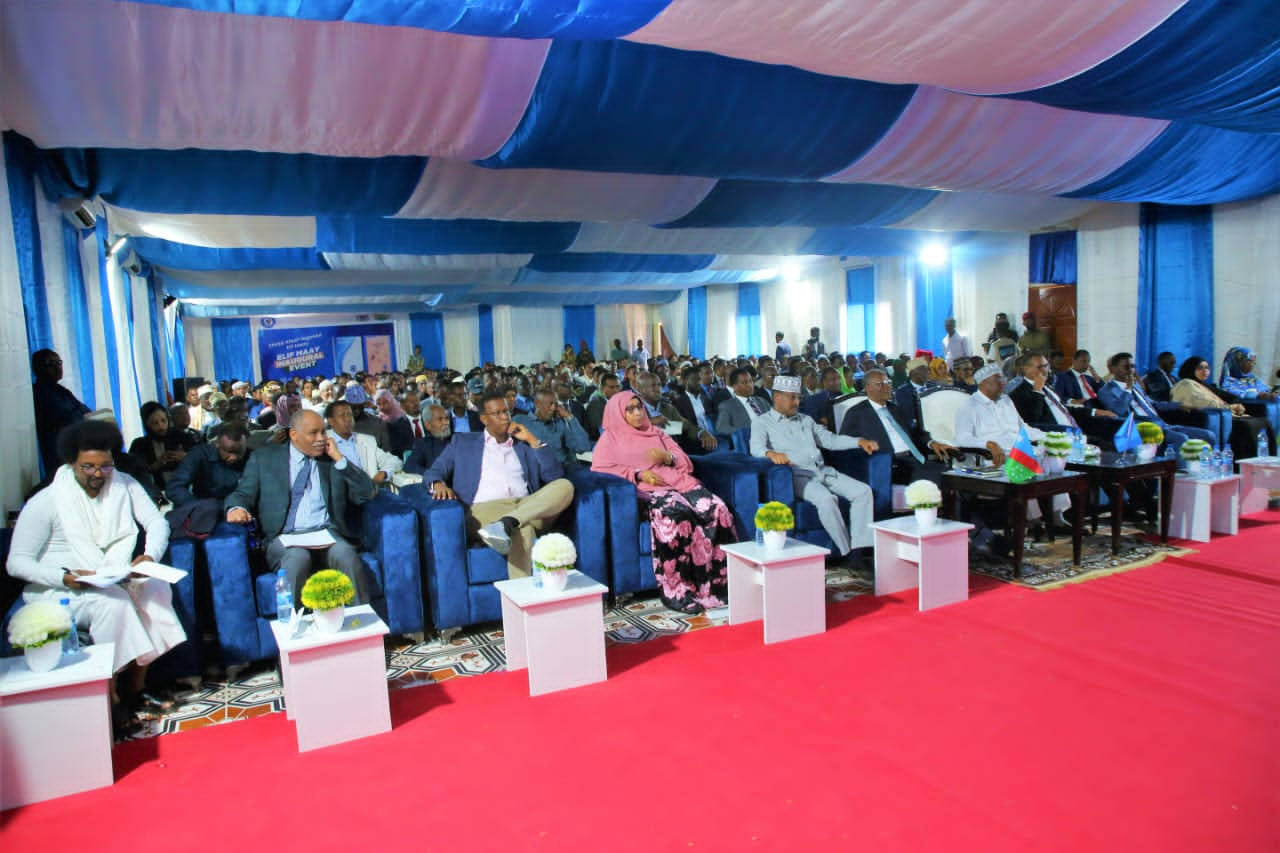By Abukar Albadri
A Historic Day for Elif Maay
On the 23rd of November 2023, under the bright African sky in the city of Baidoa, a monumental event unfolded: the official launch of the Elif Maay script, marking a new era for Somali cultural identity. This long-awaited recognition of Maay—Somalia’s second most widely spoken language—is a testament to the resilience and unity of the Maay-speaking community, who have worked tirelessly for decades to secure the rightful place of their language within Somali society.
The launch brought together a diverse group of dignitaries, scholars, government officials, artists, and community leaders, all united in celebrating this historic milestone. The program began with an inspiring recitation of verses from the Quran by Sheik Adan Sheik Said, setting a solemn and uplifting tone for the day. Southwest State Minister of Education, Mr. Mustaf Ahmed Idow, welcomed attendees with heartfelt words, stating, “I welcome all of you to Baidoa and thank you for accepting our invitations. This historic launch of the Elif Maay script in Baidoa marks a new era for Somali linguistic diversity.”
Dignitaries such as Dr. Mohamed Haji Mukhtar, the chairman of the Elif Maay Committee, Dr. Abdi Mohamed Kusow, the deputy chairman, and Dr. Abdalla Omar Mansur, the chairman of AGA, spoke passionately about the cultural and educational significance of the Elif Maay script. Dr. Abdalla captured the essence of the occasion, saying, “This is more than just the recognition of a language; it’s a profound acknowledgment of Maay culture and heritage. It is a testament to Somalia’s resilience and unity as a people.”
The words of the professors resonated with the audience, taking them on a journey through the trials and triumphs of Maay’s linguistic history—from its early origins to this significant moment of recognition. The highlight of the day was the ceremonial handover of the Elif Maay script to Southwest State President Abdiaziz Hassan Mohamed Laftagareen and Speaker of the Federal Parliament Sheik Adan Mohamed Nur. President Laftagareen expressed the importance of the day, stating, “This is a historical milestone for Southwest State and for Somalia as a whole. By embracing the Elif Maay script, we are not only preserving our heritage but also ensuring that future generations can proudly speak, read, and write in Maay.” Speaker Sheik Adan echoed this sentiment: “Today, we reaffirm our commitment to all Somali dialects, upholding Somalia’s linguistic diversity as a strength that binds us together.”
The event was not just a political or academic ceremony; it was a vibrant celebration of culture, complete with music and performances from renowned Maay artists such as Mohamud Haji Mohamed (Tarash), Muhudiin Lamadaarashooda, Markabo Hussein Dacar, and Kaafiyo Ali Hassan. These performances embodied the cultural richness of Maay, transforming the event into a true cultural festival that celebrated the depth and beauty of the Maay-speaking community.
A Journey of Resilience and Unity
The road to standardizing the Elif Maay script has been long and challenging, filled with moments of resilience and unity. Historically, the adoption of a Latin-based script for Af-Mahaa in 1972 marginalized other Somali languages, including Maay. However, the Maay-speaking community remained steadfast. The Af-Yaal literary association, founded in 1976, became a cornerstone of cultural revival and linguistic preservation, despite facing significant repression from the military regime at the time.
The momentum continued with the formation of the Inter-Riverine Studies Association (ISA) in 1993, composed of members of the diaspora, linguists, and intellectuals. The ISA took the crucial step of developing the Elif Maay script in 1994 in Toronto Canada, which gradually gained recognition among academic and community circles. Newsletters such as Demenedung and Hogol, and later the establishment of Reegay Times and Dowky Newspapers in 2000, played a pivotal role in advocating for the visibility and significance of Maay culture. The establishment of Arlaadi Radio and TV added new blood to the efforts.
Efforts culminated in 2018 with the establishment of the Elif Maay Standardization Committee, which worked diligently to finalize the script. This committee, composed of prominent scholars like Dr. Mohamed Haji Mukhtar, Dr. Abdi Mohamed Kusow, Mr. Abukar Albadri, Prof. Abdullahi Sheikh Madnur, Dr. Omar A. Sheikh Abdurahman, Dr. Omar Moalim Ahmed, along with secretariat members Aden Batar and Sharif Mohamed Haji, was instrumental in bringing the vision of Elif Maay to life. Their dedication and consultations with communities both in Somalia and the diaspora led to the declaration of Elif Maay as an official script in 2023—a declaration of cultural identity, pride, and resilience.
Celebrating Cultural Diversity
The Quran emphasizes the beauty of linguistic diversity, recognizing it as a sign of divine wisdom. The recognition of Elif Maay is a celebration of this diversity, embracing the cultural richness within Somalia itself. For too long, the narrative of a monolingual Somalia has overshadowed the nation’s true, diverse cultural tapestry. The adoption of Elif Maay symbolizes a cultural renaissance, reaffirming the value of all Somali dialects and languages, and highlighting the deep historical roots of the Maay people.
Professor Abdalla Omar Mansur, and Dr. Mohamud Mohamed Abdullahi from Jigjiga, eloquently reminded the audience of Maay’s long tradition of linguistic creativity. Prof. Mukhtar spoke of Aawow Barkadlé Yusuf’s 13th-century rendering of Arabic vowel sounds into Maay language and its unique approach to Quranic learning, and the resilient efforts of figures like Aw Sheikh Abdille Isaak and Sheikh Uways Ibn Muhammad al-Barawi (Alqadiri) pre, during and post-colonial period to promote religious literacy through Maay.
The Importance and the Way Forward
The standardization of Elif Maay is not merely about preserving a language—it is about education, equity, and inclusion. The new script will allow Maay-speaking children to be educated in their mother tongue, paving the way for better educational outcomes and fostering cultural pride. The Federal Government of Somalia, in line with Article 5 of the Constitution, is now expected to enforce the use of both Maay and Mahaa tiri in all official communications. The Ministry of Education must integrate Maay into the national curriculum, ensuring future generations have a deep connection to their roots.
To support the growth of the Maay language, there is an urgent need to establish a National Academy of Maay culture and sciences. This academy would be the central authority for the research, development, and promotion of the language, culture and scientific subjects as well as safeguarding the heritage while adapting it to meet modern needs. Additionally, the creation of a Maay language curriculum for schools across the country is crucial to ensure that Maay-speaking children receive education in their mother tongue, thereby enhancing educational outcomes and cultural pride.
The Elif Maay Committee has also recommended the immediate implementation of the script at federal and member state levels, particularly in Mogadishu, Southwest, Jubbaland, and Hirshabelle, where Maay speakers are a majority. The Federal Parliament must ensure that all laws, documents, and protocols are translated into Maay, allowing for equitable participation by all citizens in governance.
A Vision for an Inclusive Future of Somalia
The launch of the Elif Maay script is a clarion call for unity and inclusivity in Somalia. It reaffirms the cultural rights of Maay-speaking Somalis and stands as a testament to the resilience of a community that has held onto its language and heritage despite decades of systematic marginalization. As Dr. Abdi Mohamed Kusow aptly put it, “The standardization of Elif Maay is more than a script—it’s a bridge between generations and a shield against the erasure of cultural identity.”
The story of Elif Maay is a story of a people’s identity—their songs, poetry, oral history, and the wisdom passed down through generations. Now, with a standardized script, these stories can be preserved, studied, and cherished. It is time for Somalia to collectively embrace and support the continued development of Maay, ensuring that it flourishes alongside other Somali languages.
To achieve this vision, the government—both at federal and state levels—must encourage the creation of books, dictionaries, school curricula, and creative content that uplift the Maay language. Together, we can ensure that Maay finds its rightful place in classrooms, government offices, literature, and popular media. By doing so, we honor the efforts of those who came before us and pave the way for future generations to inherit a culture that values each of its unique voices.
In celebrating the launch of Elif Maay, we are celebrating the richness of our collective heritage—a heritage made stronger by its diversity. Let us all rally in support of Elif Maay and affirm our commitment to a Somalia that speaks with many voices but shares one heart.
=End=

